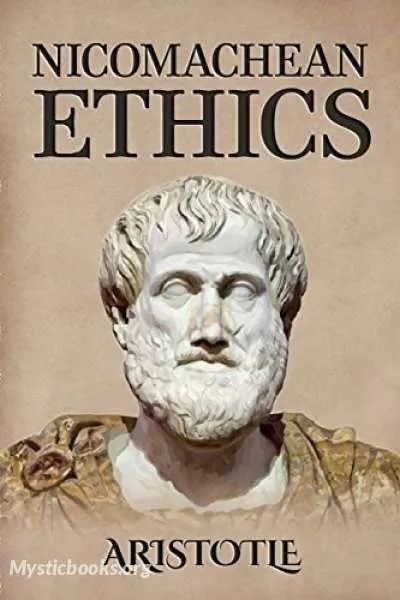
Nicomachean Ethics
by Aristotle
'Nicomachean Ethics' Summary
The theme of the work is a Socratic question previously explored in the works of Plato, Aristotle's friend and teacher, of how men should best live. In his Metaphysics, Aristotle described how Socrates, the friend and teacher of Plato, had turned philosophy to human questions, whereas pre-Socratic philosophy had only been theoretical. Ethics, as now separated out for discussion by Aristotle, is practical rather than theoretical, in the original Aristotelian senses of these terms. In other words, it is not only a contemplation about good living, because it also aims to create good living. It is therefore connected to Aristotle's other practical work, the Politics, which similarly aims at people becoming good. Ethics is about how individuals should best live, while the study of politics is from the perspective of a law-giver, looking at the good of a whole community.
The Nicomachean Ethics is widely considered one of the most important historical philosophical works and had an important influence on the European Middle Ages, becoming one of the core works of medieval philosophy. It therefore indirectly became critical in the development of all modern philosophy as well as European law and theology. Many parts of the Nicomachean Ethics are well known in their own right, within different fields. In the Middle Ages, a synthesis between Aristotelian ethics and Christian theology became widespread, in Europe as introduced by Albertus Magnus. While various philosophers had influenced Christendom since its earliest times, in Western Europe Aristotle became "the Philosopher". The most important version of this synthesis was that of Thomas Aquinas. Other more "Averroist" Aristotelians such as Marsilius of Padua were controversial but also influential. (Marsilius is for example sometimes said to have influenced the controversial English political reformer Thomas Cromwell.)
A critical period in the history of this work's influence is at the end of the Middle Ages, and beginning of modernity, when several authors such as Francis Bacon and Thomas Hobbes, argued forcefully and largely successfully that the medieval Aristotelian tradition in practical thinking had become a great impediment to philosophy in their time. However, in more recent generations, Aristotle's original works (if not those of his medieval followers) have once again become an important source. More recent authors influenced by this work include Alasdair MacIntyre, G. E. M. Anscombe, Hans-Georg Gadamer, and Martha Nussbaum.
Book Details
Language
EnglishOriginal Language
GreekPublished In
Authors
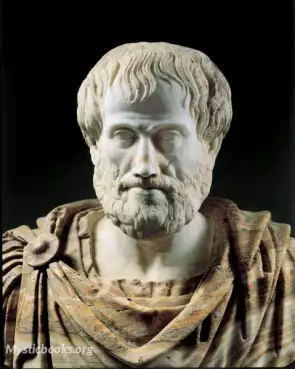
Aristotle
Greece
Aristotle (384–322 BC) was a Greek philosopher and polymath during the Classical period in Ancient Greece. Taught by Plato, he was the founder of the Lyceum, the Peripatetic school of philosophy...
Books by AristotleDownload eBooks
Listen/Download Audiobook
- Select Speed
Related books

Principles of Secularism by George J. Holyoake
In 'Principles of Secularism', George Jacob Holyoake, a prominent English secularist and advocate for freethought, delves into the concept of seculari...

Christian Patience: The Strength and Discipline of the Soul by William Bernard Ullathorne
This book delves into the concept of Christian patience as a foundational virtue, examining its nature and its role in strengthening other virtues. It...
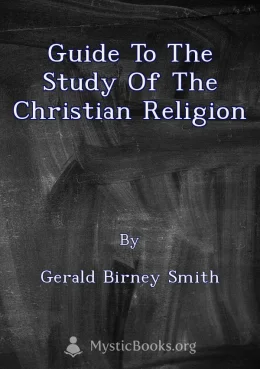
Guide to the Study of the Christian Religion by Gerald Birney Smith
This comprehensive guide offers a systematic approach to studying the Christian religion for first-year divinity students. It presents diverse perspec...
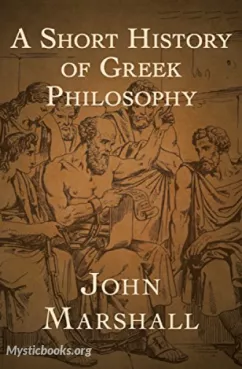
A Short History of Greek Philosophy by John Marshall
It provides an overview of the major philosophical ideas of ancient Greece, from the pre-Socratic philosophers to the Stoics and Epicureans. In this...

Essays book 1 by Michel Eyquem de Montaigne
Michel de Montaigne's *Essays* is a collection of personal reflections and observations on a wide range of topics, from the nature of human existence...

Rubble and Roseleaves, and Things of That Kind by Frank W. Boreham
Rubble and Roseleaves, and Things of That Kind is a collection of essays by Frank W. Boreham. In these essays, Boreham explores a wide range of topics...
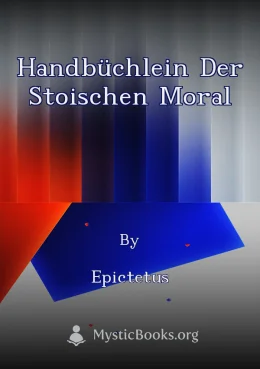
Handbüchlein der stoischen Moral by Epictetus
Encheiridion, stoische Regeln für ein zufriedenes Leben. Knapp und ausgezeichnet. Geschrieben von Epiktet (ca. 50-138). Übersetzung durch Carl Conz vo...

Bible (ASV) 33: Micah by American Standard Version
The book may be divided into three sections: Chapters 1–3 mainly consist of oracles of judgment. Chapters 4–5 of oracles of hope. Chapters 6–7 begins...

Leviathan (Books I and II) by Thomas Hobbes
Leviathan, or The Matter, Forme and Power of a Common Wealth Ecclesiasticall and Civil, commonly called Leviathan, is a book written in 1651 by Thomas...

Israel's Faith by Nathan Solomon Joseph
Israel's Faith is a collection of short readings designed to provide Jewish youth and others with helpful perspectives on Jewish belief. The book cove...
Reviews for Nicomachean Ethics
No reviews posted or approved, yet...